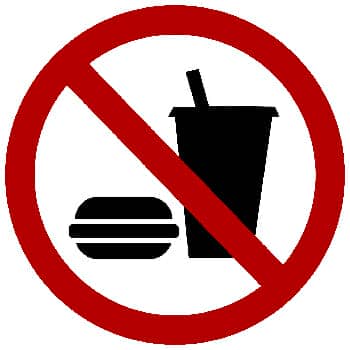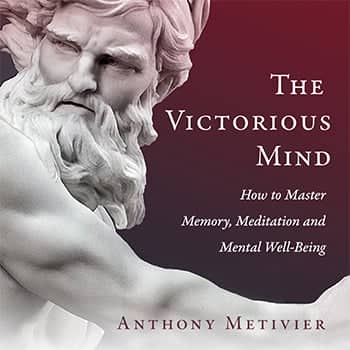 The world is packed with foods that are bad for your brain.
The world is packed with foods that are bad for your brain.
And you want to know what these are so you can avoid them.
The problem is that it’s not just about protecting your brain from these harmful foods.
It’s also about food combinations.
That’s a lesson I had to learn the hard way.
But today, I’ll share with you how I was able to map out a very brain friendly diet.
One that was friendly to my entire body too.
So are you ready to focus on foods that are bad for your brain and memory so you can eliminate them?
Let’s dive in!
Can Food Really Cause Memory Loss? Yes, And Here’s How
Here’s a point that you probably haven’t thought about before, one that will quickly become obvious.
It’s very difficult to pay attention when you’re bloated, suffering brain fog or in physical or psychological pain. That’s why it’s a must to cut foods that cause pain.
Since forming memories starts with attention, a point made constantly by renowned memory expert Harry Lorayne, anything that gets between you and incoming information, will reduce your memory.
For this reason, it’s a best practice to focus on foods that improve memory, taking care to test that they don’t cause other problems.
A dilemma I face with psoriatic arthritis, for example, is that I love both walnuts and blueberries. But just because they’re good for memory generally, doesn’t stop them from causing pain that breaks my focus and attention.
Other ways that foods cause memory loss are often more subtle and tragic. For example certain foods can contribute to having a stroke, which then requires certain activities to restore impaired memory.
Worse, foods that cause oxidate stress have been linked to the development of Alzheimer’s. Fortunately, the National Institute on Aging has found that the MIND diet has proven helpful in preventing such incidents.
What Are the 5 Worst Foods for Your Memory?
As we go through this list, it’s important to distinguish between never eating bad foods for your brain, infrequent and long-term consumption.
Each person needs to weigh these matters on their own. In many cases, the clarity you need will require consultation with a doctor and possibly a nutritionist. I’ve frequently sought advice from both over the years, in addition to having many sessions with a diet and well-being coach.
As great as consulting the Internet and a blog dedicated to memory like mine can be, remember C.A.R.E. Communication Always Reaches Excellence. Be in communication with multiple professionals as you craft the perfect diet for your brain and memory.
One: Processed Foods
As David J. Linden notes in his book, The Compass of Pleasure, we love eating carbs and calories. The emptier the better.
As Linden works through how complicated the brain-gut connection in humans is, he notes that certain foods “activate overlapping pleasure circuits in the brain” as if they were drugs like cocaine.
Processed foods bulging with carbs are the biggest culprit here, not merely because many are also packed with sugar.
They’re bad for your brain because they lack nutrients.
Can’t you get the needed nutrients elsewhere?
Possibly, but as Susan Augustine points out in The Hungry Brain: The Nutrition/Cognition Connection, chemicals in processed foods go one step further in a very bad direction:
“Eating too many simple sugars (carbohydrates) depletes the body, and thus the brain of Vitamin B-1. The result is a malnourished brain.”
This means that even if you are eating a balanced diet, you can easily be stripping their value out of your diet, leading to “lack of energy, moodiness, numbness in legs, mild depression, loss of appetite, and a general feeling of apathy.”
There’s no need to avoid carbs altogether, however. As Dr. Preston Estep discusses in The Mindspan Diet, making your own bread amongst other staple foods is your best bet. The book is packed with great recipes if you’re ready to start eating better.
Two: Trans Fat
According to the Mayo Clinic, trans fats are the worst you can eat.
Not only are they product of industrial processes. They’ve been shown to increase your chances of experiencing a stroke.
If you need help ridding your diet of this harmful fat, check out Get the Trans Fat Out. It not only gives you tons of ideas for eating more healthy, but also helps you change your lifestyle around food.
Three: Processed Soy
A lot of people sing the praises of soy. And there’s no doubt that it can give you a lot of healthy nutrients.
But that doesn’t mean it’s good for your brain.
Harvard’s School of Public Health provides a wide ranging discussion of its pros and cons.
Personally, soy, including fermented soy, gives me physical pain and brain fog.
If you’re eating a lot of it, you might want to try eliminating it for a few weeks and see if your memory issues subside.
Four: Raw, Genetically Engineered Foods
In How We Eat with Our Eyes and Think with Our Stomach, Melanie Mühl calls out many fallacies.
For example she shares a study showing that raw carrots help us absorb only 1% or their beta-carotene compared to 30% when we eat them cooked.
Plus, Mühl notes that contemporary carrots are the result of selective breeding. Many vegetables we eat have not only been bred in particular ways, but often bear the mark of new genetic modifications that haven’t been around long enough to be studied.
This doesn’t mean that you must cook everything you eat, but it’s definitely worth checking your diet for foods that perhaps once were good, but now could be poisoning your brain and body.
I’ve found that making sure all fruit and vegetables that I consume are cooked first has done wonders for my cognition and pain-free living.
Five: Your Food Allergies
As I mentioned, each person needs to dive deep into their own personal profile to get at the bottom of their brain health issues.
Another Person’s Poison: A History of Food Allergy could be just the book you need to read.
I can’t tell you the amount of times a doctor has told me that my exploration of diet for brain optimization isn’t scientific.
Yet, as Matthew Smith notes in Another Person’s Poison, endless scientific debates have shaped the relationship between allergies and the science of immunology.
To this day, there’s very little agreement and many doctors still insist that sufferers are dealing with psychosomatic issues.
What does Smith imagine will help?
“Food allergy should be understood not as a neat, precisely concept easily defined and described but as an amorphous and complex phenomena that has and will continue to change over time. It takes creativity, imagination, and open-mindedness to see food allergy in this way, qualities that are not always engendered in either medical education or health-care economies.”
In other words, you need to find a doctor who takes the topic seriously and is willing to get deeper into the changing nature of food allergies. To pursue one-size-fits-all answers only leads to frustration and worse.
Don’t Worry, Here Are 6 Food Types to Improve Your Memory
I wanted to end this list with your personal food allergies because there is no perfect list.
That said, there are some very wise places to start when you’re looking to improve your overall health and boost cognition and memory.
These foods include:
- Herbs known to improve memory
- Green tea
- Walnuts
- Blue berries
- Salmon
- The MIND diet (especially with this study in mind)
These are the main foods that have been exhaustively studied.
But you could find many more for yourself by keeping a food journal. So let’s talk a bit more about that process.
How to Build a Healthier Diet for Memory
As I shared in The Victorious Mind, I once led a horrendous life.
I drank to excess, stuffed myself on ice cream and pizza and often went for days eating only from fast food restaurants. Only the use of memory techniques helped ensure I passed my exams.

And because my digestive system was ruined early on, I needed to learn how to understand my own diet in a highly nuanced way.
That’s because I wound up so crippled by psoriatic arthritis in my mid-30s that I could barely walk. The pain was so bad, I could hardly think either.
Here are the steps I followed to get clean again and clear up my memory. Eliminating the pain was powerful too because of how it allowed me to pay attention.
Elimination Dieting
Although not for everyone, elimination diets have been shown critical for people dealing with conditions like I suffer.
There are different ways to do them, but the point is to try and get to the bottom of what foods are causing your brain fog and physical pain issues. It’s necessary because as Smith and others have pointed out, testing food issues is diagnostically challenging.
In my case, I used a LEAP/MRT test, which remains controversial but still used by highly credentialed functional dieticians who are well-versed in the caveats.
It’s not difficult to do even without a LEAP assessment. You just narrow your diet for a few weeks down to foods you think aren’t causing any issues.
Then, after your brain fog and memory loss symptoms clear up, start slowly reintroducing foods.
In this much clearer dietary situation, you’ll better spot which foods may be causing issues.
Rotation Dieting
After I completed the elimination diet phase, I worked on a diet where I exposed myself to different foods as infrequently as possible.
The theory has been supported in a variety of studies, such as this one for IBS showing rotation results superior to eating a FODMAP diet. I’ve also used rotation with a FODMAP diet, which also works well.
The basic idea is that your body builds up “markers” and creates issues due to the levels of various substances in your body. But if you only eat problematic foods once a week, you’re much less likely to build these markers to the point of creating symptoms.
Consistent Monitoring
This point is critical:
I engaged in all of these experiments with professional help. I visited my GP regularly for tests, consulted a nutritionist and worked with a functional dietician.
It would have been difficult for me to get any results without their help. Not only was I in a lot of pain, I was struggling at that time to remember the particulars of my diet.
There’s no reason for you to go it alone. Always seek professional help and keep a food journal so you don’t have to rely on memory.
Improve Your Memory Skills Today with the Right Diet
Now, I do teach memory techniques, so you might think it weird to use a journal.
Not at all.
Journals are themselves a powerful tool for improving your memory. You can journal for memory improvement as such or for specific competition outcomes if you want to become a memory athlete.
The point is to eat well, but also train your memory.
That’s because preventing memory loss through diet is one thing. Training your memory to reach superior levels is another.
If you’re interested in adding memory training to your dietary refinement activities, check out my FREE Memory Improvement course here:
This simple program will help you master your memory as you get your diet in order.
As I mentioned, before I got my diet sorted, memory techniques helped me get through school and they will help you achieve your memory goals too.
But they’re a supplement to fixing your diet, so what do you say?
Are you ready to eliminate the foods on this list that literally kills your brain cells by starving them of Vitamin B?
I hope you’re nodding your head yes. I have few regrets in life myself, but not taking care of my diet sooner is one of them.
So go ahead and clean up that diet while improving your memory. You won’t regret it!
Related Posts
- Memory Loss Story And Memory Recovery Tips With Jennie Gorman
Memory loss is frightening. However, the solution may be simpler than you think. Jennie Gorman's…
- Can Stress Cause Memory Loss And Confusion?
Can stress cause memory loss and confusion? Yes, but oddly enough, stress can in fact…
- Bad Memory Does Not Equal Bad Memorization
A reader asks about memorizing English vocabulary words using the Magnetic Memory Method.







2 Responses
Your articles are always so informative. The research is outstanding as well as the links you provide. Just a couple of things re: this article:
1. Can you please share a pix/graphic image of your Memory Journal! Or maybe you could give us an article about the best/most efficient way to Journal for Memory Improvement. Like I said earlier, it was your graphic image of a memory palace that hooked me to your Memory Method.
2. A word about carrots and Melanie Muhl or Muehl because I don’t have an umlaut on this home laptop… I’ve improved my vision for many years by drinking freshly squeezed carrot juice from my juicer. For some reason, probably lack or time to make & also clean the juicer, I stopped and my vision went to hell in a hand basket. Then a few days prior to reading this article I decided to get back into the carrot juicing as excellent vision is very important to me. I’m a companion care giver to a 95 yr old woman who lost her vision to macular degeneration. Thus, I’m a gung-ho on eye training, ingesting certain oils and my carrot juice. The store I buy the carrots from gets them from Mexico.
3. Use of Rosemary — In your opinion, would inhaling the scent of Rosemary be advantageous?
Again, your articles are so well written and documented. You must have been a journalist at one point or another.
Thanks for posting.
Thanks so much for your post, Rose.
There is an article on this site about how to journal for self improvement. It’s actually linked to in this article in the part about food journaling.
I rarely share images of my own journals because it’s beside the point. There are countless different ways to do it and the best way is to explore journaling as a science of your own self.
That said, there are images of journals other have created to share what they’ve done to follow the principles of journaling I share in The Victorious Mind. I feel that is a much better means of expressing the core concepts. Not look what I do, but look at what others have enabled themselves to do.
That’s great about your carrot juice experiment. I can imagine that would give much better results than in the study she mentioned, and all the more so if you’re getting carrots from a place that produces them free from modern issues.
Rosemary is certainly worth exploring. There’s a link on this page to a whole article about herbs and memory you might like to check out. But ultimately, like images of my journals, my opinion is not nearly as important as your own research and validation through personal experimentation.
I believe this is the attitude and pulse that people find rewarding in my writing. Helping others travel in the direction of a science of the self where there is only research and the examples set internally along the way.
Does this manner of looking at things help you out?